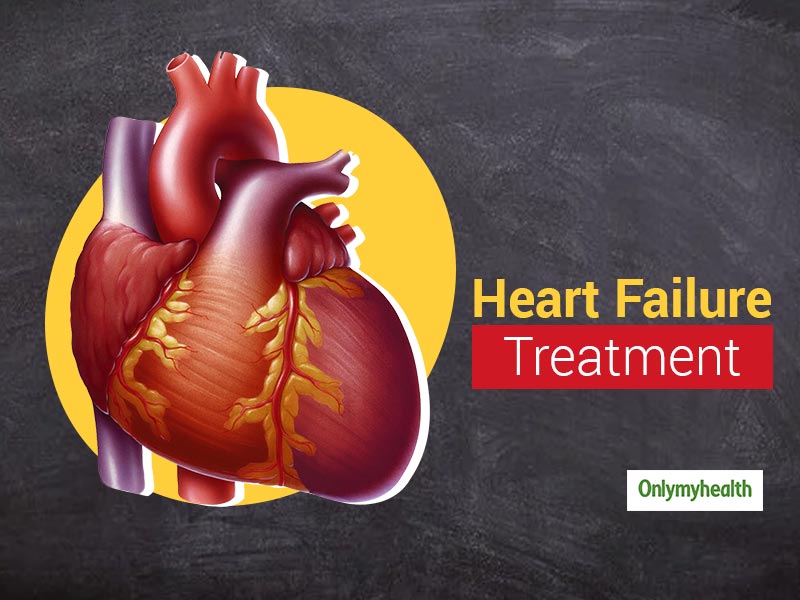
In heart failure, there exists a progressive condition in which the heart weakens over time and occurs when fluid accumulates around the heart and causes it to pump inefficiently. However, it is a severe condition that requires medical care and treatment. There is two type of Heart Failure - Chronic heart failure where there is an ongoing problem and Acute heart failure, where symptoms suddenly appear, and then might even go away. It can also affect either side of the heart or both.
Table of Content:-

Therefore, several conditions or a combination can contribute to the development of heart failure, such as:
- High blood pressure: Hypertension or high blood pressure makes the heart work harder than it must, over time, this puts pressure on the heart muscle responsible for the pumping action.
- Coronary artery disease (Angina): Narrowed arteries limit the supply of oxygen-rich blood. The heart pumps harder to meet the need of the limited blood flow resulting in weakened heart muscle.
- Heart attack: Heart attack and Heart Failure are different. A heart attack is a sudden cardiac event that has a direct effect on the basic functioning of the heart. The damage caused by a heart attack can mean that the heart will never be able to pump as effectively as it did earlier, leading to Heart Failure
Also Read: World Heart Rhythm Week 2020: Home Care Tips For Patients Suffering From Arrhythmia
- Diabetes: Chronic condition like diabetes increases the risk of high blood pressure and coronary artery disease which in turn increases the risk of acute heart failure
- Congenital heart defects: Some people are born with heart disorders, basically known as the congenital heart defects
- Cardiomyopathy: A heart muscle disease caused due to alcohol consumption and/or smoking or drug abuse or other yet to be discovered causes.
- Valvular heart disease: These have a higher risk of having a heart failure than other people
- Obesity: Overweight people have a higher risk of getting heart diseases, especially heart failure.
- Irregular heartbeats: These abnormal heart rhythms, especially if they are very frequent and fast, weakens the heart muscle and causes heart failure
Surgical Ways To Treat Heart Failure
There are different ways to treat Heart Failure, and it depends on the condition because of which it has happened. Or if they are because of blocked arteries, bypass surgery or angioplasty can benefit in such cases. However, if Heart Failure is on the last stage, a heart transplant is the only option.
Drugs, Medication and Heart Failure

We usually treat Heart Failure with a combination of medications. Depending on the symptoms, you might be prescribed one or more medicines. Generally, there are commonly 4 classes of drugs which are used in Heart Failure:
- Diuretics help when there is a condition of fluid overload. However, they do not affect reducing mortality
- ACE - I / ARBs / ARNI are new classes of drugs which not only reduce symptoms but also increase the life expectancy. Among them, drugs are chosen based on their effectiveness in reducing symptoms / increasing life expectancy and associated side-effects. In general, ARNI (Sacubitril & Valsartan combination) is most effective followed by ACE-I (ramipril, perindopril etc) followed by ARBs (olmesartan, telmisartan, valsartan, losartan etc)
- Beta-blockers (metoprolol, bisoprolol, carvedilol) has few effects in reducing symptoms, but it effectively reduces death associated with heart failure
- MRAs (spironolactone, eplerenone) are another group agents which can reduce symptoms as well as improve life expectancy in selected patients with heart failure
Also Read: Do Not Delay Medical Attention For Stroke, Here’s What You Need To Know About Stroke Management
It is imperative to follow a healthy diet with the proper medication and treatment to manage Heart Failure in a better way. Hence, the following are a few keys point a Heart Failure patient should take care of:
- Less intake of salt and fluid is essential to manage advance Heart Failure
- Low carbohydrate and fat diet or high fibre diet can help to maintain proper body weight and as these diets can manage diseases like coronary heart disease/heart attacks, diabetes and obesity. It will lower the risk factor for Heart Failure and helps to sustain a healthy Heart.
- Smoking / Alcohol self-restraint will help to reduce the risk factor cardiomyopathy, which later leads to Heart Failure
With inputs from Dr Sundeep Mishra, Professor of Cardiology, AIIMS, New Delhi
Read more articles on Heart Health
How we keep this article up to date:
We work with experts and keep a close eye on the latest in health and wellness. Whenever there is a new research or helpful information, we update our articles with accurate and useful advice.
Current Version
